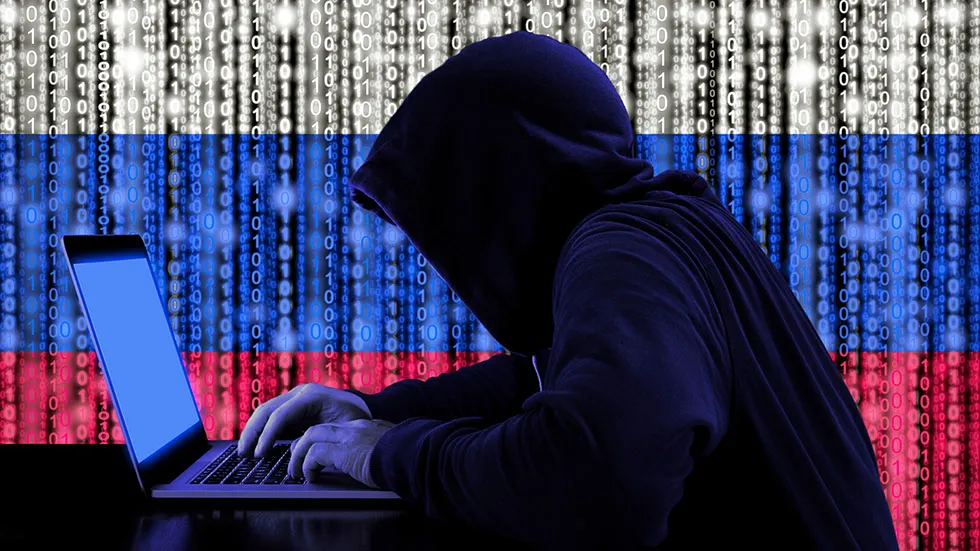Introduction
On October 7, 2024, pro-Ukrainian hackers launched a significant cyber attack against Russia’s state media company, VGTRK, coinciding with President Vladimir Putin’s birthday. This incident highlights the ongoing cyber warfare associated with the Russo-Ukrainian conflict, which has escalated since the invasion in February 2022. As both countries have increasingly utilized cyber operations as a means of warfare, this latest attack exemplifies the intersection of digital conflict and political messaging.
The Attack and Its Implications
VGTRK confirmed that it faced an “unprecedented hacker attack” on the evening of October 7. Despite this declaration, the company stated that it suffered “no significant damage” and that its operations returned to normal swiftly. However, reports from the Russian media outlet Gazeta.ru suggested a more severe impact, claiming that hackers managed to wipe critical data from the company’s servers, including backups, indicating a well-planned and executed operation.
The cyber attack was reportedly a “congratulatory” gesture from Ukrainian hackers directed at Putin. This symbolic action underscores the use of cyber warfare not only as a tactical maneuver but also as a means of psychological warfare. By choosing such a significant date, the hackers aimed to send a message about their capabilities and resolve.
The Hackers Behind the Attack
The group believed to be responsible for this attack is known as Sudo rm-RF, a pro-Ukrainian hacker collective. In the wake of the attack, the Russian government announced that it would investigate the incident, framing it as part of a broader “anti-Russian agenda” perpetuated by Western influences.
This attack reflects a broader trend in cyber warfare where both Russia and Ukraine have increasingly turned to digital means to achieve their strategic goals. As traditional military confrontations continue, cyber operations serve as a parallel battlefield.
Cybersecurity Landscape in Ukraine and Russia
As of late 2024, the cybersecurity environment in both Ukraine and Russia has been marked by a significant increase in cyber incidents. According to a report from Ukraine’s State Service of Special Communications and Information Protection (SSSCIP), there were 1,739 registered cyber attacks in the first half of 2024, representing a 19% increase from the previous half. Notably, 48 of these incidents were classified as critical or high severity.
Yevheniya Nakonechna, head of the State Cyber Protection Centre of SSSCIP, stated that attackers have shifted their focus from destructive attacks to establishing covert footholds in critical systems. This pivot emphasizes the necessity of maintaining low profiles while executing operations aimed at supporting military efforts.
Types of Cyber Attacks
The cyber operations conducted by both Ukrainian and Russian actors have varied in method and intention. Ukrainian authorities have attributed various attacks to distinct activity clusters, including threats linked to China and Russian state-sponsored hacking groups. For instance, a group tracked as UAC-0027 has been observed deploying a malware strain called DirtyMoe for cryptojacking and DDoS attacks.
In contrast, the Russian hacking group UAC-0184 has gained notoriety for initiating communications with targets through messaging apps like Signal, often to distribute malware. This demonstrates the increasingly sophisticated tactics being employed in cyber warfare, where adversaries not only aim for disruptive attacks but also seek to gain intelligence and maintain access to critical systems.
The Role of Gamaredon
Another significant threat in the cyber landscape is the Gamaredon group, also known by various names, including Aqua Blizzard and Trident Ursa. This Russian hacking collective has been actively targeting Ukraine and has maintained a consistent operational tempo since before the 2022 invasion.
Gamaredon is known for deploying a variety of malware, including information stealers like PteroBleed, along with an arsenal of tools for data exfiltration and remote access. Researchers have noted that Gamaredon employs various techniques to evade detection, often utilizing services like Telegram and ngrok to enhance their operational security.
The Broader Context of Cyber Warfare
The cyber conflict between Ukraine and Russia serves as a reminder of how digital warfare has become integral to modern conflicts. The ongoing tension has led to an environment where both state and non-state actors exploit cyberspace for strategic advantage.
The implications of these cyber attacks extend beyond immediate operational impacts. They can disrupt public sentiment, influence political narratives, and escalate tensions between nations. In the case of the VGTRK attack, the timing and execution were likely designed to serve multiple purposes, including bolstering Ukrainian morale and signaling to both domestic and international audiences the capabilities of pro-Ukrainian hackers.
Responding to Cyber Threats
As both nations continue to navigate this complex cyber battlefield, the need for robust cybersecurity measures becomes paramount. For organizations, particularly in critical sectors, establishing comprehensive security protocols is essential. This includes regular vulnerability assessments, employee training on recognizing phishing attempts, and investing in advanced threat detection systems.
Moreover, the evolving tactics of cybercriminals highlight the necessity for organizations to adopt a proactive rather than reactive approach to cybersecurity. Implementing solutions that incorporate machine learning and behavioral analytics can enhance threat detection capabilities and reduce response times in the event of an incident.
Conclusion
The attack on VGTRK serves as a significant case study in the realm of cyber warfare, illustrating the ways in which digital operations have intertwined with geopolitical conflict. As cyber capabilities continue to evolve, both Ukraine and Russia will likely enhance their strategies, leading to an ongoing cycle of attack and counterattack.
In this rapidly changing landscape, the importance of cybersecurity cannot be overstated. Organizations must remain vigilant and adaptive to protect against emerging threats. As the conflict continues, the lessons learned from incidents like the VGTRK attack will be vital in shaping future cybersecurity policies and strategies. The interplay of technology, warfare, and politics will continue to define the digital age, necessitating a comprehensive approach to security that encompasses both technological and human factors.

